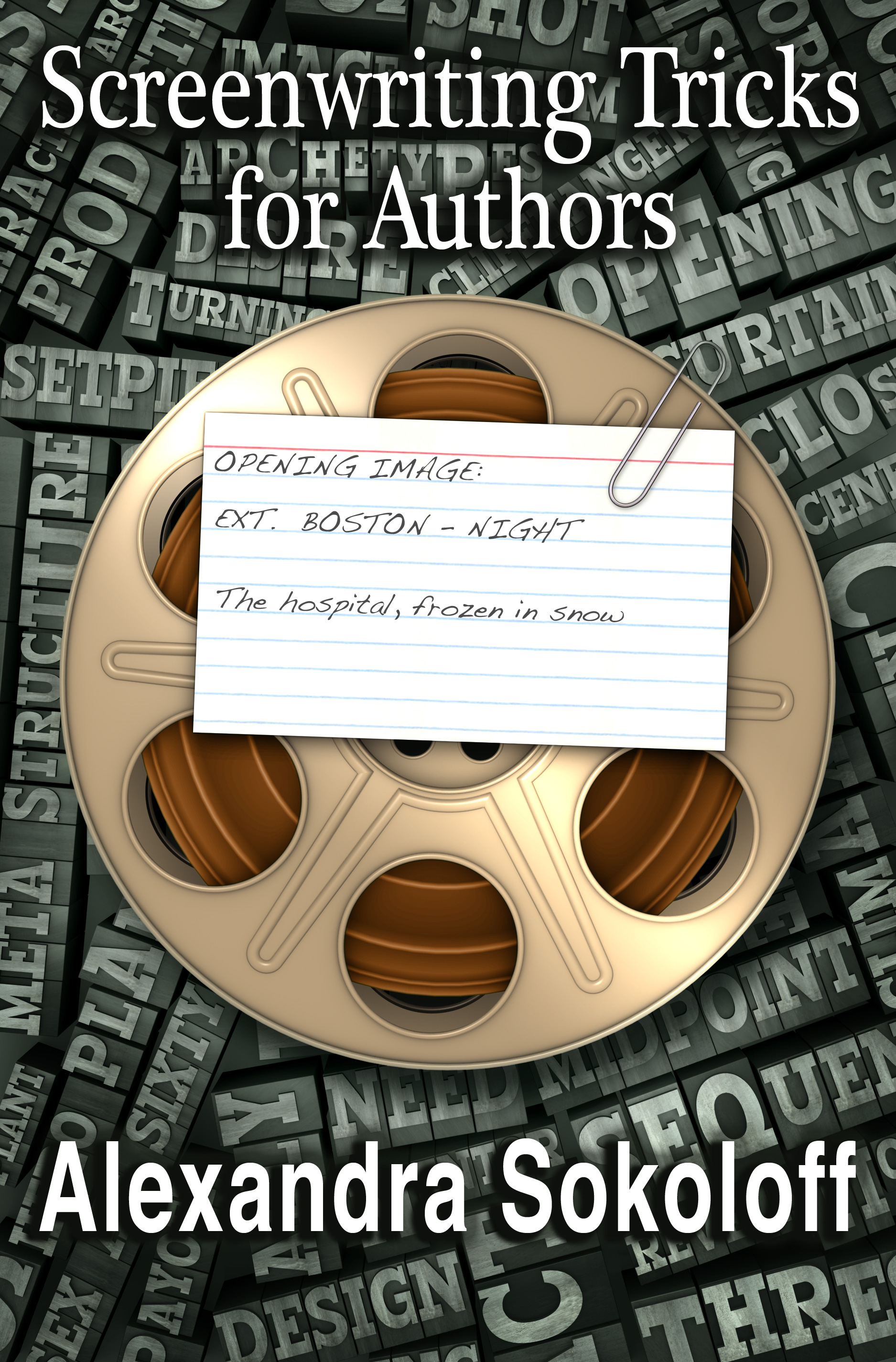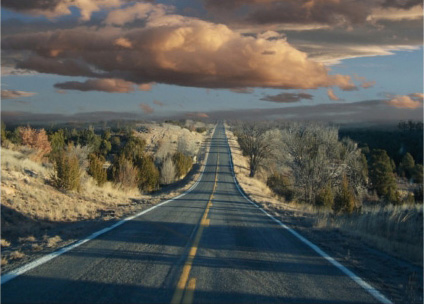I am (THANK YOU GOD, ANGELS, AND THE UNIVERSE) closing in on the end of my current book, my first paranormal, part of The Keepers trilogy coming out in the fall.
This is the stage of a book in which I have no earthly interest in doing anything other than to just get the damn thing done. Even though I am comfortably within my deadline, though not entirely of my own doing, I am not doing much of anything these days but waking and working, pausing once during the day to go work out (because if I didn’t, I would kill people). And falling into an exhausted sleep after, if not during.
Not that there isn’t a lot of procrastination going on within the day, but I really don’t WANT to do anything else – I don’t want to talk to anyone, I don’t want to watch movies or TV, I definitely don’t want to blog, I don’t want to go out to lunch or dinner or Superbowl parties (although I was thrilled at the outcome). The state of discomfort of being near the end of a book but not quite finished is so great to me that I would rather put everything else aside and push through to the end and pick up the pieces of whatever life I have left when it’s actually over and there is that feeling of relief so vast that you actually remember why you ever wanted to write in the first place.
But I find myself in an interesting dilemma, for maybe the first time in my professional writing life.
I don’t know what to write next.
That’s not entirely true – I am 3/4ths done with a YA I was writing at the same time that I was writing this paranormal, but I bailed on it around Christmas when I realized it was just too hard to be writing two books at the same stage of the writing process – that is, first draft, second half. That’s the HARDEST stage of any book for me and I couldn’t handle doing two at that same stage. So yes, I will go back and finish that book with some of this new “I finished the book!” energy.
Oh yeah, and also about the same time I was finishing my Screenwriting Tricks For Authors workbook. (Um, the next time anyone hears me whining about not getting enough work done, can you just gently remind me…)
What I mean is, I don’t know what I’m writing after that YA, and that’s an issue, because as you know, or for those of you who don’t know, as I’m about to tell you, you always need to be at least a year ahead of publication, so I need to have another book in the pipeline for NEXT year.
Now the fact is, I have several complete proposals done. Whole stories worked out. Could bash out a screenplay on any number of them in six weeks, easily – have done it a million times before. (Well, dozens.) Actually I have a whole first draft of a book done, too, but that I can’t go back to right now because it’s just too painful a reminder of a very painful year last year – I need more distance to finish that one sanely.
And I probably will write the books in those proposals one day. Or I won’t. I have so many books I am never going to be able to write. But I know they’re not the right book right now. At this stage of writing I can’t afford to be working on any book that isn’t the RIGHT book.
In the past I would have just jumped into one of those ideas, just decided and soldiered on. I HATE the not knowing. It is excruciating. But we really have such limited time – as writers and on earth.
And the truth is, I’ve had a cataclysmic year. Profound changes. I’m not the same person I was when I wrote those proposals. I feel I need to start from where I am now – wherever that is, and I’m not even pretending that I know.
So as uncomfortable as I am about it, I am not jumping into the first thing that I think of, or the first thing that pleases me but that might not be a big enough book. I am waiting. I am meditating. I am reading randomly. I am paying attention to dream images, songs, people, that catch my attention. And I am taking my own writing advice. I am making lists.
On my own blog, at the prompting of a reader, I have started a gargantuan series on “How to Write A Novel, From Start To Finish.” (No, I never once said I wasn’t insane).
And I’m doing it for ME as much as anyone.
I’ve already done four or five posts on just generating that perfect idea – and I intend to do several more – because this is a part of the writing process that people rarely spend enough time on, and is crucial if you want to develop a riveting book, even more crucial if you have any hope of being paid to write. You are going to spend two years of your life, minimum, on this book (and that’s truly a minimum).
So that brings us to the eternal question:
How DO you get your ideas?
When people ask this of authors, many of us tend to clam up or worse, get sarcastic – because the only real answer to that is, “Where DON’T I get ideas?” or even more to the point, “How do I turn these ideas OFF?”
The thing is, “Where do you get your ideas?” is not the real question these people are asking. The real question is “How do you go from an idea to a coherent story line that holds up – and holds a reader’s interest – for 400 pages of a book?”
Or more concisely: “How do you come up with your PREMISES?”
We all have story ideas all the time. Even non-writers, and non-aspiring writers – I truly mean, EVERYONE, has story ideas all the time. Those story ideas are called daydreams, or fantasies, or often “Porn starring me and Edward Cullen, or me and Stringer Bell,” (or maybe both. Wrap your mind around that one for a second…)
But you see what I mean.
We all create stories in our own heads all the time, minimal as some of our – uh – plot lines may be.
A better question is “What’s a GOOD story idea?”
I see two essential ingredients:
a) What idea gets you excited enough to spend a year (or most likely more) of your life completely immersed in it –
and
b) Gets other people excited enough about it to buy it and read it and even maybe possibly make it into a movie or TV series with an amusement park ride spinoff and a Guess clothing line based on the story?
a) is good if you just want to write for yourself.
But b) is essential if you want to be a professional writer.
As many of you know, I’m all about learning by making lists. Because let’s face it – we have to trick ourselves into writing, every single day, and what could be simpler and more non-threatening than making a list? Anything to avoid the actual rest of it!
So here are two lists I encourage my workshop students to do to get those ideas flowing, which I am now doing for myself.
List # 1: Make a list of all your story ideas.
This is a great exercise because it gets your subconscious churning and invites it to choose what it truly wants to be working on. Your subconscious knows WAY more than you do about writing. None of us can do the kind of deep work that writing is all on our own. And with a little help from the Universe you could find yourself writing the next Harry Potter or Twilight. That’s my plan, anyway.
Also this exercise gives you an overall idea of what your THEMES are as a writer (and very likely the themes you have as a person). I absolutely believe that writers only have about six or seven themes that they’re dealing with over and over and over again. It’s my experience that your writing improves exponentially when you become more aware of the themes that you’re working with.
You may be amazed, looking over this list that you’ve generated, how much overlap there is in theme (and in central characters, hero/ines and villains, and dynamics between characters, and tone of endings).
You may even find that two of your story ideas, or a premise line plus a character from a totally different premise line, might combine to form a bigger, more exciting idea.
But in any case, you should have a much better idea at the end of the exercise of what turns you on as a writer, and what would sustain you emotionally over the long process of writing a novel.
Then just let that percolate for a while. Give yourself a little time for the right idea to take hold of you. We all know what that feels like – it’s a little like falling in love.
List # 2: The Master List
The other list I always encourage my workshop students to do is a list of your ten (at least) favorite movies and books in the genre that you’re writing, or if you don’t have a premise yet, ten movies and books that you WISH you had written.
It’s good to compare and contrast your idea list with this IDEAL list.
So that’s another thing I’ve been doing again for myself. Here’s part of it, in no particular order.
Rosemary’s Baby
Silence of the Lambs
Alice in Wonderland
The Haunting of Hill House (book and film)
The Shining (book and film)
Room with a View (film)
Withnail and I
A Wrinkle in Time
The Witching Hour
Pet Sematery
Hamlet
Arcadia
Rosencranz and Guildenstern Are Dead
The Fountainhead
Atlas Shrugged
Notorious
Vertigo
Suspicion
Rebecca (book and film)
Ten Little Indians/And Then There Were None
It (the book)
Bringing Up Baby
The Thin Man
The Little Foxes
The Children’s Hour
Pride and Prejudice
Bridget Jones’ Diary (book and film)
The Wire
Deadwood
Mad Men
I, Claudius
Fawlty Towers
Rome
Philadelphia Story
It’s A Wonderful Life
Groundhog Day
The Breakfast Club
Poltergeist
The Stand (book)
Carrie (book and film)
I included my favorite TV, and I could go into musicals, too, but I’ll spare you. Well, except I have to mention Sweeny Todd. And Phantom of the Opera. And Chicago. And…
And on the myth and fairy tale front:
Ariadne (Theseus and the Minotaur)
East of the Sun and West of the Moon
Eros and Psyche
Beauty and the Beast (all three of those last are the same story, essentially).
The Handless Maiden
The Yellow Dwarf
1001 Nights
Sleeping Beauty
Now, that’s a BIG list, of all-time favorites that I see/read over and over and over again, and it doesn’t even begin to scratch the surface. And on the surface, it seems to have a lot of disparate genres there. But there are underlying commonalities that are very specific to my own taste (and I’m the only one who can truly say what those are, just as you are the only one who can say what your emotional preferences are).
What do I see about that list?
Dark dark dark dark dark…. Except for the romantic comedies and swoony Room With A View.
Lots of horror, but more psychological than gory. Lots of psychological thrillers. Some adventure fantasy and fantasy fantasy. The Stoppard is about trippy extra-dimensional occurrences, plus he’s a genius. Actually that goes for Shakespeare, too, extra-dimensionally. Lots of psychology – the Lillian Hellman plays are dramas, but very dark ones that explore ordinary and completely chilling human evil. I especially like human evil so big it seems almost supernatural (as in Silence of the Lambs and Rebecca). Withnail and I is a flat-out drug movie, and has the British comedy of chaos I so love in Fawlty Towers. Lots of sex, or at least, the sex is part of what I love about a lot of those choices. (The Wire and Deadwood, for example…). Lots of Cary Grant. Oh, right, that would be sex.
What are some of the themes and subthemes of these stories? (For me, personally, I mean, and not trying to be too analytical about it – just spewing:)
Good vs. evil (and good usually triumphing, ambiguously). Inability to distinguish the supernatural from reality. Inter-dimensionality. Erotic tension. Loss of control (and that absolutely includes the comedies on there – Fawlty Towers, Bringing Up Baby, Withnail and I, are complete rollercoaster rides of hysteria.) What is reality? Man Must Not Meddle. The deal wit
h the devil. What it means to be a hero or heroine. Unlikely heroes and heroines. Coming to terms (or not) with one’s extraordinary gifts. Disparate people uniting to accomplish something as a team. A man and a woman who don’t trust each other having to work together, discovering they are divinely matched.
And even more importantly, what FEELING am I looking for when I read and watch these stories? What EXPERIENCE am I looking for? Again, this may be the most important indicator of what genre you’re writing in.
I like a lot of sensation in my stories. That is, I want a story to make me experience a lot of sensation. And not easy, light, fun sensations either, for the most part. Fear, thrills, doubt, sex, urgency, loss of control, violent surprise. I love the overwhelming feeling of having something huge, possibly supernatural, going on around me (in the form of the characters I’m projecting myself onto). Something evil, even, but so powerful and mesmerizing I have to explore it, understand it. And that can be a situation, as in Rosemary’s Baby or The Shining, or a person, as in The Children’s Hour. I want a sense of cosmic wonder. I want a sense that good does conquer evil, that good people can make a difference, but without sugar coating. I like a lot of game playing, matching wits (Philadelphia Story, Thin Man, Silence of the Lambs).
So, what I write is psychological horror, or supernatural thriller, or supernatural mystery, or psychological thrillers with an extra-dimensional twist. And while that sometimes makes my books frustratingly hard to categorize (in libraries, for example…) it also has branded me in a way that has been useful to me as an author, and that I’m pretty obligated to stick with now. Let’s face it – I’m not going to suddenly resurrect the chick lit genre. And in a happy non-coincidence, what I’m looking for in a book is what my readers read my books for, or so they tell me.
So this week as I make my lists (and finish that damn book), I am concentrating on the FEELING of my next book, and letting the details come as they will.
I hope.
Authors, my question for the day is – What are you trying to make your reader or audience FEEL? Horror? Thrills? The glow of romance? The adrenaline and exhilaration of adventure?
And readers, what are you hoping a book will make you feel?
– Alex
————————————————————————-
PS. The Price was released in the UK this week, from Little, Brown:



